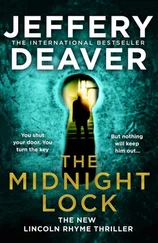The men crouched before the pungent fireplace. Two clicks of two lighters, and they each touched the blue flame to opposite corners of the tally. They sat back and watched the document ignite and curl under the bright orange blaze, sending embers flitting upward into the flue like bugs curiously repelled by, rather than drawn to, a bright lamp on a gentle summer’s dusk.
While San Francisco is home to more than forty geographic elevations, the A-list celebrities are the famed Seven Hills, just like in Rome. They are Telegraph Hill, Russian Hill, Rincon Hill, Twin Peaks, Mount Davidson, Lone Mountain, and the most luxurious, Nob Hill.
The name derives from nabob , the term referring to a rich and conspicuous businessman, and it was applied to this summit because it was here that the Big Four — the tycoons involved in the creation of the Central Pacific Railroad — had mansions: Leland Stanford, Collis Potter Huntington, Mark Hopkins and Charles Crocker. The men modestly referred to themselves as “the Associates.”
Colter Shaw was now enjoying the unstoppable sun and the cool air in this lofty neighborhood, sitting in a rooftop bar and café. The view was fabulous. When the June gloom descends, or the autumn rainy season brings downpours for weeks upon end, San Francisco can be unbearably glum. But on days like this, the sun fully unfurled, the I-left-my-heart town can turn the wordless into Beat-era poets, the tone-deaf into chanteurs.
Shaw was sipping an Anchor Steam, the essential San Francisco beer. In his travels, which took him far afield, he always tended to pick local brews and this was one of his favorites.
Much of his day had been taken up with interviews with the San Francisco FBI agents who were running the BlackBridge case. All of the agents in the Bay Area field offices had been vetted and were clean. Ashton Shaw’s concerns had proven to be a bit excessive in that while there was some SFPD corruption, only five patrolmen and brass were in BlackBridge’s pocket, out of thousands of officers.
Shaw was sipping the beer and, mostly from curiosity, perusing a menu that was heavy with tourist fare — though of the Nob Hill variety: Manchego cheese, serrano ham, bruschetta, lobster rolls. Also a kids’ menu, evidence that trust-fund youngsters enjoyed the same chow as their common counterparts did: cheese sticks, pizza, and potatoes and onion rings that had met their crispy fate in boiling oil.
He was not here for the food, though. He and Victoria would meet later and go to a back alley in Chinatown. He hoped he could find one of the places where, years ago, Ashton Shaw had had meetings over lunch with local Chinese businessmen, art dealers and professors. Occasionally Ash would bring along one or more of the children. Even Dorion too, at the time younger than three years old. His sister had eaten her noodles by hand, one at a time. Young Colter had been mesmerized by the quiet, observant Chinese men who treated Ashton with respect and seemed subtly impressed with the man’s ability to discuss Asian philosophy and politics and wield chopsticks as if he’d been weaned from bottle to the lacquered rods at a single-digit age.
The memory faded, and it was on his third sip of Anchor Steam that he noted he was being watched.
A large man, Anglo, in a dark suit and slightly less dark shirt, was standing immobile near the hostess station outside and had been there for more time than seemed normal. Tables were available but he simply stood in one spot, with arms crossed. Through sunglasses he was eyeing the patio, but mostly he was eyeing Colter Shaw.
Shaw’s right hand set the bottle down and continued casually to the napkin in his lap and thereafter to the grip of the Glock 42 in the holster, tucked in the waistband of his black jeans and hidden by the shirt, which was roughly the same shade as that of the behemoth man’s at the hostess station.
Well, there’s the minder.
But where is the mindee?
The answer arrived a moment later like a foraging pigeon.
“No need for that,” came the man’s voice behind him. It had a delicate English lilt.
Shaw turned.
At a nearby table Jonathan Stuart Devereux lifted a glass of wine Shaw’s way. Apparently he’d been observing Shaw observe the admirable scenery — and the substantial bodyguard.
“He’s safe.” As if talking about a dog. Then: “Join me, join me.”
Shaw dropped his own menu on the table. He swiveled his chair, the metal legs gritting unpleasantly on the concrete floor. He easily lifted the heavy piece of furniture and plopped it down across from Devereux. The man was in a garish light blue suit — no stripes today — and pink shirt. The groping octopus of a handkerchief was cream-colored today. The shoes were polished to black mirrors.
“You followed me,” Shaw said. “Not easy to miss a Rolls. I wasn’t paying attention.”
Devereux looked over his guest from behind those large, rectangular TV-screen glasses. Today the frames were baby blue. “Ah, but why here, Mr. Shaw? My word.”
“The view. The beer.”
“Don’t have the soup, whatever you’re leaning toward. Fair warning. It’s watery and the onions grew from cans.”
The man looked around, his hands gesturing before him, fingers bending and straightening, palms up, palms down. The digits adjusted his busy handkerchief. Why this look? What impression was he trying to convey? The word dandy came to mind.
The melodious voice, with its suave over-the-Pond modulation, offered, “Quite the adventure you’ve had in this town, haven’t you, Shaw? You were born here.”
This was not a question.
“Technically Berkeley.”
“Cal. That’s what the University of California at Berkeley is called. Yes. Berkeley’s the town, Cal is the school. Your mother was a professor, a physician, but you were born off campus. Not at the medical center where she taught. She did quite the work as a principal investigator too, now, didn’t she?”
Again, this was certain information that Devereux had found and kept, like acorns buried by fat-cheeked squirrels in late summer. Meant of course to intimidate.
“Quite the adventure,” the man repeated, his voice now an ominous whisper.
“What can I do for you, Devereux?”
His hands became spirited once more and he muttered angrily, “I had such a fine plan. Such a pure design. We’d find the voting certificate, my companies would run for office, we’d win, of course. And then, bang.” A palm struck the tabletop and drew attention. “Onward to the new world.”
Shaw thought once more of the protests in Berkeley.
Corporate Sellouts — No!
Devereux took a sip of yellow wine. “Oaky chardonnay. The sort that makes you shiver. The vintners in California need to work on that. But it’s the best they have here.”
Devereux would be a man who had to order from the right side of the menu.
“If you hadn’t followed me here,” Shaw said blandly, “you could’ve gone someplace with a better list.”
Devereux’s eyes strayed to a nearby table: two attractive women in business attire — white suit, lime-green dress, both form-fitting. He pushed the lenses higher, the better to study them. Which he did for a moment.
Shaw said, “I saw your political plans once Banyan Tree got into office. It was in Amos Gahl’s courier bag. Deregulation was the theme. Environment, banking, healthcare and insurance. Cutting social programs to the bone. Private police. I smelled human rights issues.”
Devereux turned away from visually molesting the two women diners.
“Ah, we could argue till the early hours, couldn’t we? I could respond that deregulation leads to corporate success, which leads to more employment and a better economy. One could also contend that corporations are far more efficient and ethical than a mere mortal politician: a company would never be caught with its fly open. But you would come up with a counterargument. I would counter-counter. It would become oh-so tedious...” Another sip of the wine he was going to finish despite himself. “It would have been a noble experiment... But let’s not quibble. Do you ride the cable cars?”
Читать дальше
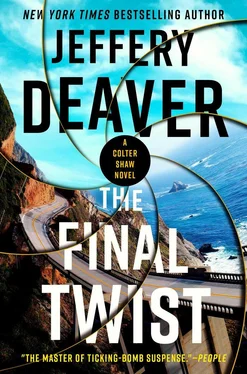
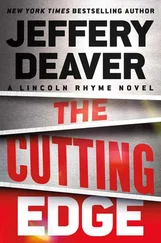

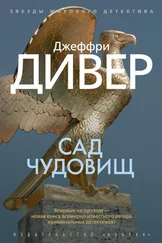

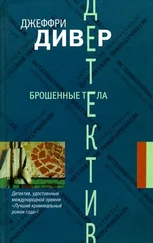
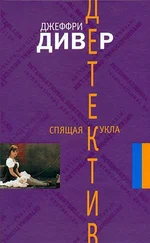
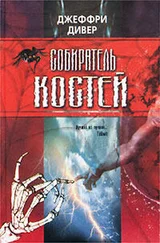
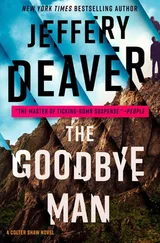
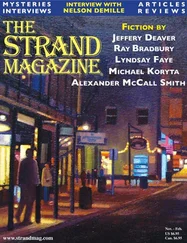
![Джеффри Дивер - Where the Evidence Lies [A Lincoln Rhyme Short Story]](/books/403782/dzheffri-diver-where-the-evidence-lies-a-lincoln-r-thumb.webp)

